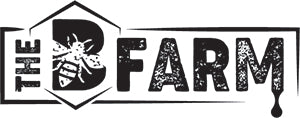Honey Bee Behavior
When you work with honey bees every day, it’s important to learn about their lifestyle, habits, and behavior. While you can’t determine a single bee’s mood just by looking at it, watching the colony’s behavior can tell you a lot about what’s currently going on inside the hive. Read on to learn more about honey bee behavior and how it can help you take better care of your bees.
Pollen collection can also indicate hive health. Honey bees only collect pollen to feed the brood. No pollen collection is an indicator that there is no brood—which means there is no queen and your colony is about to fail.
If you’re working with an aggressive hive, remember to stay calm and work slowly. If you’re at ease, your honey bees will also feel more at ease around you. You can also use a bee smoker to calm your hive. The smoke covers the agitated pheromones of guard bees, preventing the rest of the hive from smelling those pheromones and becoming aggressive. Just remember to use it sparingly so that you don’t drown out the bees and agitate them further.
Are you curious to learn more about honey bee behavior? Or are you ready to start your own bee farm? Talk to our experts or find your own healthy bee nucs for sale at The B Farm today!
Honey Bees Are Social and Hard Working
Honey bees are incredibly social. They’re curious about the world around them and incredibly loyal to their hive and the queen they serve. All honey bee social behavior revolves around keeping the queen and her brood healthy, and all the worker bees work together to this end. Worker bees even communicate with each other through movements called a waggle dance to guide their fellow bees to nearby food and water sources. Other workers feed the larvae, guard the hive, or perform other jobs—all working to do their part and keep the colony strong and safe.Using Behavior To Determine Colony Strength
Bees’ dedication to their colony influences their behavior. Beekeepers who are well-versed in honey bee habits can use this knowledge to monitor the health of their colony without opening the hive. Spend some time watching your honey bees come and go from the hive. On a nice day, you can see dozens of bees coming and going from a healthy hive every minute. If there are hundreds of honey bees flying back and forth, you have an extremely strong, thriving colony. But if there are fewer bees, that means there are fewer workers and your colony’s population is growing weak.Pollen collection can also indicate hive health. Honey bees only collect pollen to feed the brood. No pollen collection is an indicator that there is no brood—which means there is no queen and your colony is about to fail.
Handling Bee Aggression
While honey bees are mostly docile, all colonies have their bad days. That’s why it’s important to know how to deal with aggressive honey bees. First, it’s important to understand where that aggression comes from. Most of the time, an angry honey bee is a stressed honey bee. If your bees are being aggressive—flying at you, buzzing loudly, or swarming around the hive—it's usually a sign that something is threatening the colony. If you notice your bees are agitated, look for signs of predators or pests in and around the hive. Other reasons for aggression include queen loss, honey shortage, poor weather, and overhandling.If you’re working with an aggressive hive, remember to stay calm and work slowly. If you’re at ease, your honey bees will also feel more at ease around you. You can also use a bee smoker to calm your hive. The smoke covers the agitated pheromones of guard bees, preventing the rest of the hive from smelling those pheromones and becoming aggressive. Just remember to use it sparingly so that you don’t drown out the bees and agitate them further.
Are you curious to learn more about honey bee behavior? Or are you ready to start your own bee farm? Talk to our experts or find your own healthy bee nucs for sale at The B Farm today!
